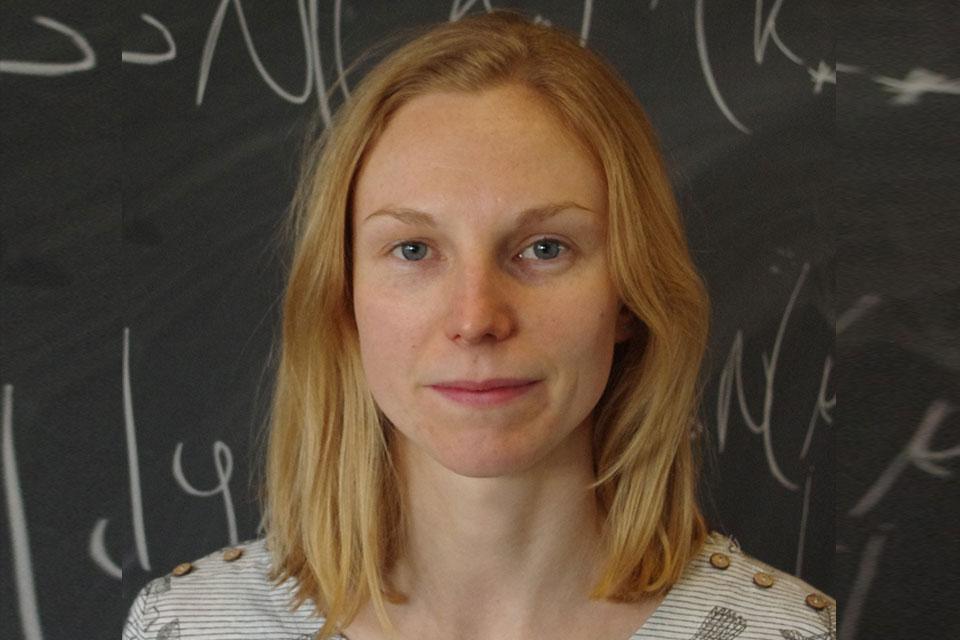Dr Rebecca Bowler has been awarded the Institute of Physics’ Henry Moseley Medal and Prize 2021, and elected as a Fellow of the Institute of Physics. The IOP bronze early-career medal recognises her exceptional contributions to the observational study of the first galaxies in the Universe, where she has provided the benchmark for future studies with new facilities.
Dr Bowler has established herself as a world expert in the selection and detailed study of the most luminous galaxies at Cosmic Dawn. In this most competitive of fields, her works stands out as being novel, rigorous and continually challenges theoretical predictions for the formation of the highly star-forming and massive galaxies in the early Universe. She is now set to take her work, which has been predominantly based on deep ground-based imaging data, to the next level, combining insights from the forthcoming Euclid mission with data from the ground-based Rubin Observatory.
Dr Bowler’s work has demonstrated that highly luminous objects do exist into the epoch of reionisation and that quenching processes are not efficienct at this time – representing a revolutionary discovery. She has been awarded time on some of the most competitive facilities available for astronomy, namely the Hubble Space Telescope, Atacama Large Millimeter/submillimeter Array (ALMA) and ESO Very Large Telescope, all as principal investigator, and has held a prestigious Hintze Fellowship at Oxford and a Nicholas Kurti Junior Research Fellowship at Brasenose College (only one is awarded annually across all science disciplines). In 2018 she won a Glasstone Fellowship (only two awarded per year across all science disciplines) and in 2020 won an STFC Ernest Rutherford Fellowship. She has also devoted significant time to outreach and equality, diversity and inclusion activities, both within Oxford (President of the Oxford Women in Physics Society) and in wider collaborations.
‘I am absolutely delighted to receive the Henry Moseley Prize and Medal,’ comments Dr Bowler. ‘It has been a privilege to work on these exciting and challenging problems during my career so far, and I am thankful to have had so many talented collaborators and students to share the journey with. I am on the edge of my seat waiting to see what we find in the first data from the new Euclid and Vera Rubin Observatories!"
Professor Ian Shipsey, Head of Department, Physics, comments: ‘This is another fantastic recognition for Rebecca. Her distinctive work on the earliest galaxies in the Universe is of great importance. She is an exceptional young physicist.’

